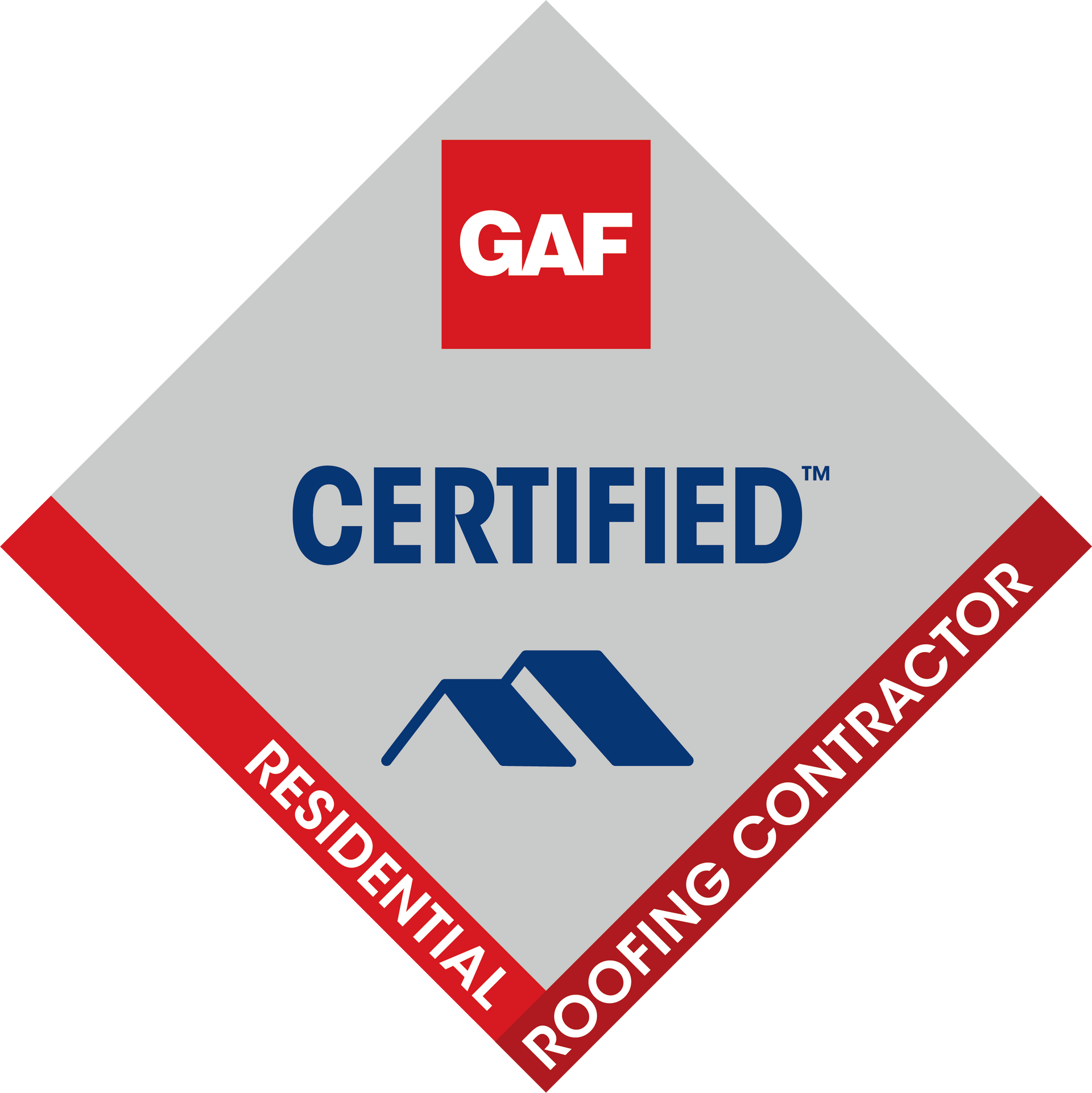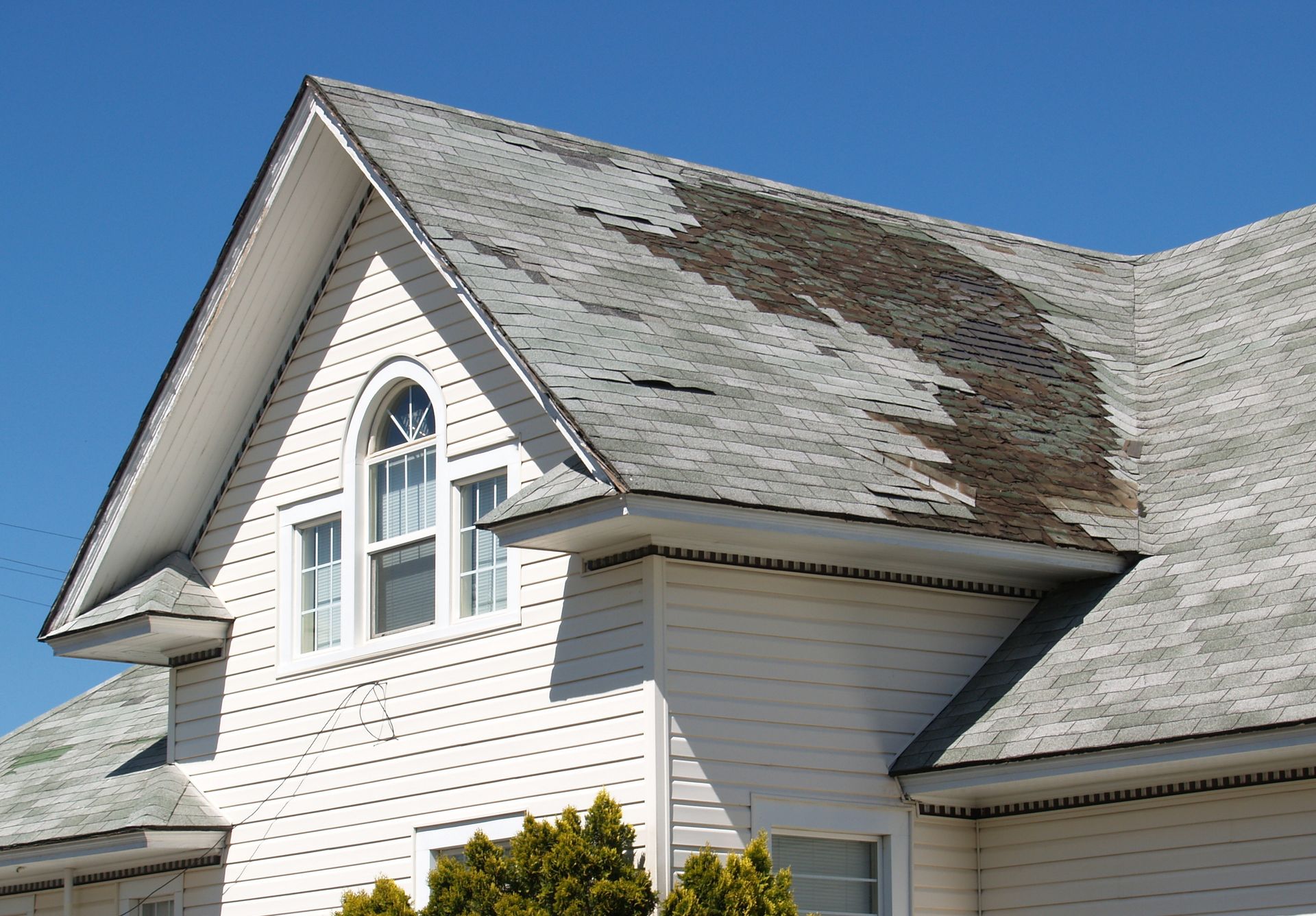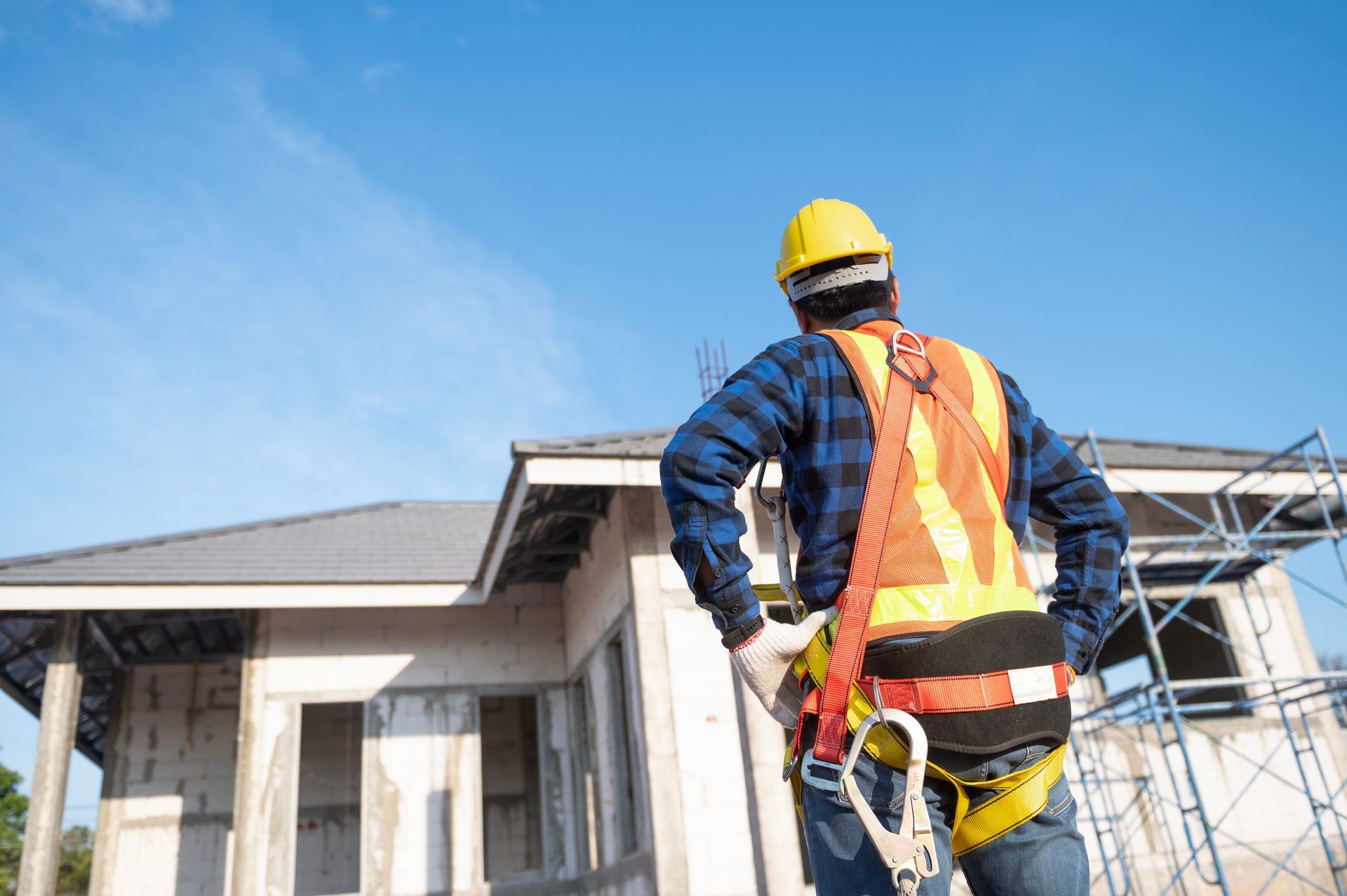Roofing Longevity - How Long Can you Expect Your Roof to Last?
David Webb • November 7, 2023
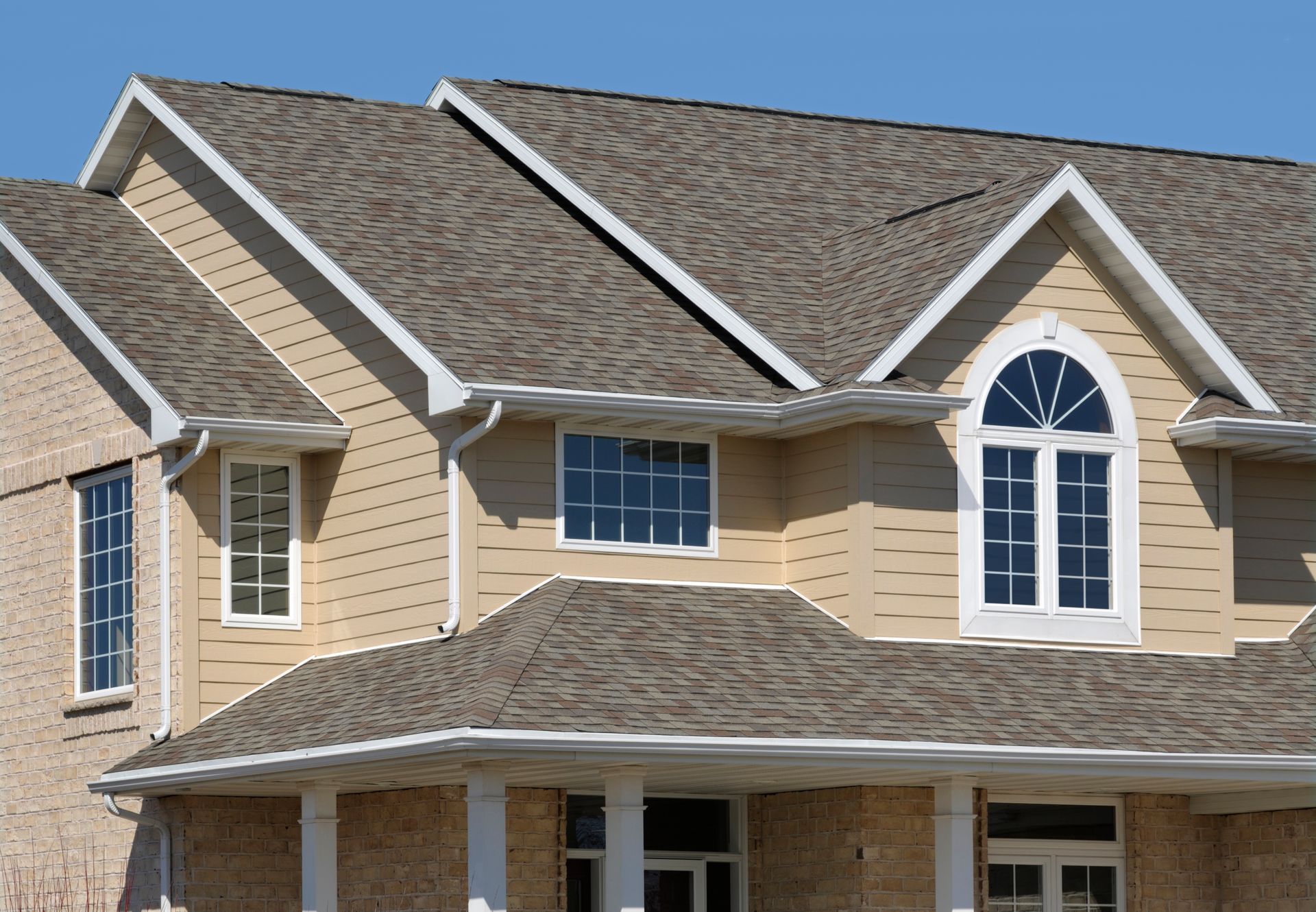
Asphalt Shingles:
Average Lifespan: 20 to 25 years
Asphalt shingles are the most common roofing material in North America due to their affordability and ease of installation. While they offer reasonable durability, their lifespan can vary based on factors such as climate, ventilation, and maintenance. With proper care, you can expect asphalt shingles to last around 20 to 25 years.
Metal Roofing:
Average Lifespan: 40 to 70 years
Metal roofing, including options like steel, aluminum, and copper, is renowned for its longevity. Metal roofs are highly resistant to severe weather conditions, such as hail and heavy snow, and they can last anywhere from 40 to 70 years or even longer with adequate maintenance.
Wood Shingles and Shakes:
Average Lifespan: 20 to 40 years
Wood shingles and shakes provide a natural and aesthetically pleasing roofing option. However, they require regular maintenance to prevent issues like rot and moss growth. With proper care, wood roofing can last between 20 to 40 years.
Slate Roofing:
Average Lifespan: 50 to 100+ years
Slate roofing is known for its remarkable durability and elegant appearance. It's a natural stone material that can withstand harsh weather conditions and last for several decades. In many cases, well-maintained slate roofs can surpass the century mark in terms of lifespan.
Clay and Concrete Tiles:
Average Lifespan: 50 to 100+ years
Clay and concrete tiles are popular in regions with warm and dry climates due to their energy efficiency and longevity. These tiles can last for over 50 years and, with proper care, often exceed 100 years.
Rubber Roofing (EPDM):
Average Lifespan: 25 to 30 years
EPDM (ethylene propylene diene terpolymer) rubber roofing is commonly used for low-slope or flat roofs. It's known for its durability and resistance to UV rays and weathering. While EPDM roofs have a lifespan of approximately 25 to 30 years, their longevity can be extended with regular inspections and maintenance.
TPO and PVC Roofing:
Average Lifespan: 20 to 30 years
Thermoplastic single-ply roofing materials like TPO (thermoplastic olefin) and PVC (polyvinyl chloride) are favored for their energy efficiency and resistance to chemicals and UV radiation. These roofs typically last around 20 to 30 years.
It's important to note that these are average lifespans, and actual roof longevity can vary based on factors like climate, quality of installation, maintenance, and local environmental conditions. Regular inspections and timely repairs can significantly extend the life of your roof, regardless of the material used. When considering a new roof or planning for roof maintenance, leave it to the experts at Mississippi Pro Roofing
to make sure you are taken care of.
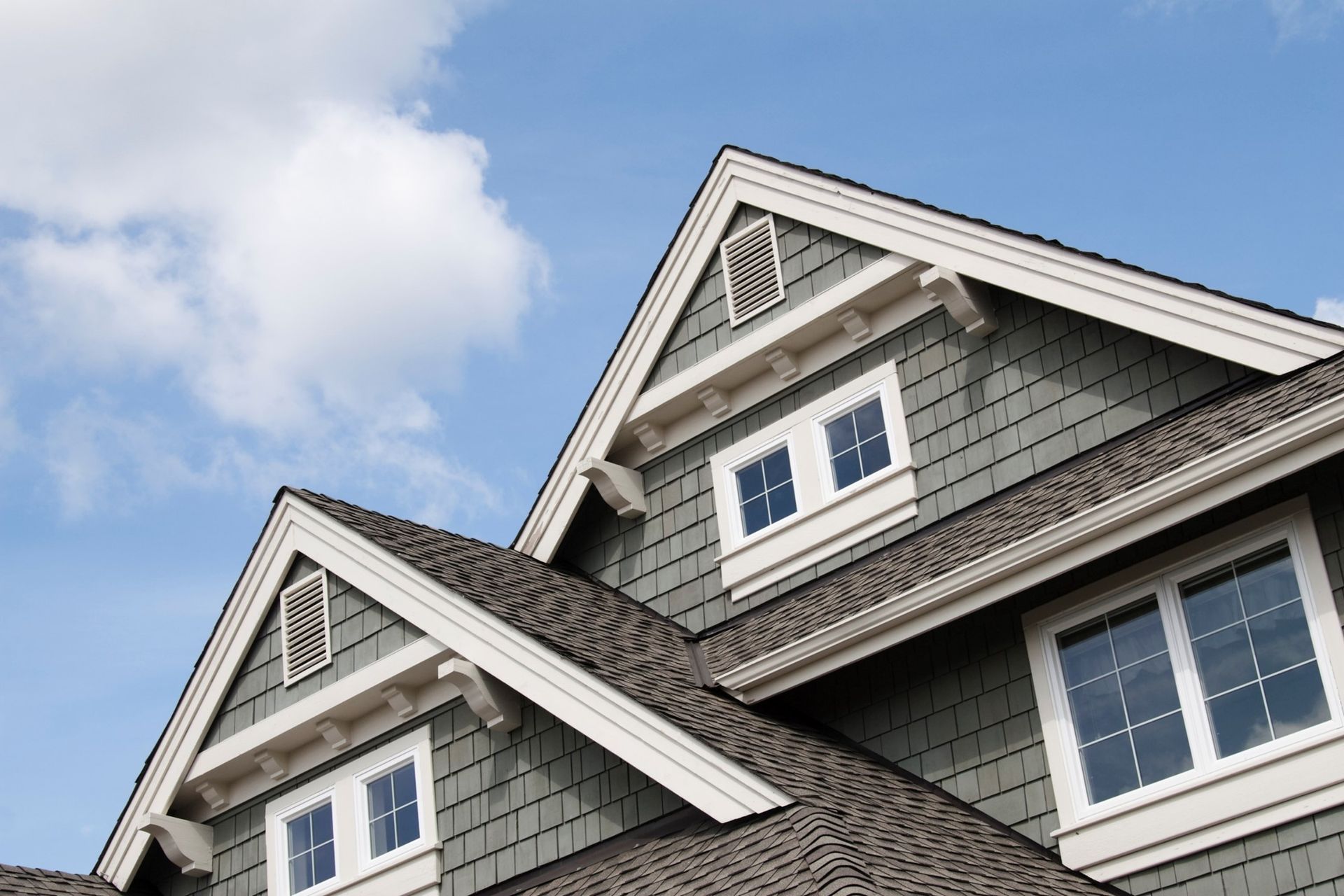
Selecting the right roofing contractor is crucial when you're facing repairs, maintenance, or installing a new roof. Your home's roof is its first line of defense against the elements, and the quality of its installation or repair can significantly impact your home's safety, appearance, and value. To ensure you make an informed decision, here's a comprehensive guide on how to choose the right roofing contractor. Verify Licensing and Insurance Start by ensuring any contractor you consider is licensed to perform roofing work in your area. A valid license is a basic indicator of their professionalism and knowledge of local building codes and regulations. Additionally, verify they have both liability insurance and workers’ compensation insurance to protect you from liability in case of accidents or damages during the project. Look for Local Experience Choosing a local contractor not only supports your community but also ensures the contractor is familiar with local weather patterns, building codes, and suppliers. Local contractors are more accessible for follow-up service, warranties, or repairs down the line. Plus, they have a reputation to maintain within the community, which can be a good indicator of their commitment to quality work. Assess Their Reputation and Reviews Research the contractor’s reputation online by reading reviews and testimonials on platforms like Google, Yelp, and social media sites. Don’t just look for positive reviews; pay attention to how the company responds to and resolves any negative feedback. A contractor with a solid reputation will likely provide quality service. Evaluate Communication and Professionalism Effective communication is essential for any successful roofing project. Your contractor should be easy to reach, responsive to your inquiries, and clear in their communication about project timelines, costs, and expectations. During your initial consultation, assess their professionalism, the clarity of their proposal, and whether they take the time to understand your needs and concerns. Ask About Warranties Inquire about the warranties offered by the contractor. A reputable contractor should offer a warranty on their workmanship in addition to any manufacturer warranties on the roofing materials used. This provides you with peace of mind and protection against potential issues arising after the project's completion. Compare Quotes and Understand Costs Get detailed quotes from several contractors to compare prices, but remember that the cheapest option isn’t always the best. Understand what is included in each quote, such as materials, labor, and any additional services. A reputable contractor will be transparent about costs and explain any significant price differences between options. Check for Proper Licensing and Credentials Beyond the basic licensing, check if the contractor has any additional certifications or credentials from roofing manufacturers or industry associations. These can be indicators of their commitment to ongoing education and adherence to higher standards of quality. Request References Finally, ask for references from previous clients, and if possible, visit some of their completed projects. This allows you to assess the quality of their work firsthand and hear about other homeowners’ experiences working with the contractor. Choosing the right roofing contractor requires careful consideration and research. Before you sign a contract, make sure you are making the right choice. Give our Roofing Pros at Mississippi Pro Roofing a call at 601-376-9942. We service Brandon , Madison , Flowood , Clinton , Ridgeland and most of central Misssissippi.

In the ever-evolving world of home improvement, roofing trends and innovations are continuously shaping the way we protect and enhance our homes. From sustainable materials to cutting-edge technologies, the roofing industry is embracing change and offering homeowners exciting new options. In this blog post, we'll explore some of the latest trends and innovations that are revolutionizing the way we think about roofs. Solar Roofing Revolution One of the most groundbreaking innovations in roofing is the integration of solar technology. Solar roofing tiles and panels are becoming increasingly popular as homeowners seek eco-friendly and energy-efficient solutions. These advanced roofing materials seamlessly blend with traditional roofing options while harnessing the power of the sun to generate electricity. Cool Roofing Materials With a growing emphasis on energy efficiency, cool roofing materials are gaining traction. These materials reflect more sunlight and absorb less heat, helping to reduce energy consumption and lower cooling costs. Cool roofing options come in various styles and colors, providing homeowners with both practical and aesthetic benefits. Green Roofing Practices Sustainable and environmentally friendly roofing solutions are at the forefront of industry trends. Green roofing involves incorporating vegetation, such as plants and grass, onto the roof surface. This not only adds a touch of nature to urban environments but also provides insulation, improves air quality, and reduces stormwater runoff. Smart Roofing Technologies The era of smart homes has extended its reach to roofing technologies. Smart roof systems include sensors that can detect leaks, temperature changes, and other potential issues. Homeowners can monitor their roof's health through mobile apps, receiving real-time alerts and ensuring timely maintenance to prevent costly repairs. Metal Roofing Innovations Metal roofing has been a staple for its durability, but recent innovations are taking it to new heights. Advanced coatings and finishes enhance the longevity of metal roofs while offering a wide array of colors and styles. Additionally, new installation techniques and interlocking systems make metal roofs more resilient than ever. Synthetic Roofing Materials For those seeking the aesthetics of traditional materials without the drawbacks, synthetic roofing options are gaining popularity. Polymer-based materials emulate the look of slate, wood, or clay tiles but are more lightweight, durable, and cost-effective. These materials provide an attractive compromise between aesthetics and practicality. 3D Printing in Roof Construction In the realm of construction, 3D printing is making waves, and roofing is no exception. Some companies are exploring the possibilities of 3D-printed roofing components. This innovative approach allows for precision in design and manufacturing, reducing waste and potentially lowering overall project costs. Conclusion As we journey into the future of roofing, these trends and innovations are reshaping the landscape of possibilities for homeowners. From harnessing solar power to embracing sustainability, the roofing industry is committed to offering diverse and forward-thinking solutions. Whether you're planning a roof replacement or simply staying informed about the latest advancements, keeping an eye on these trends can help you make informed decisions that align with your needs and values. The future of roofing is here, and it's an exciting time to be part of this transformative industry.
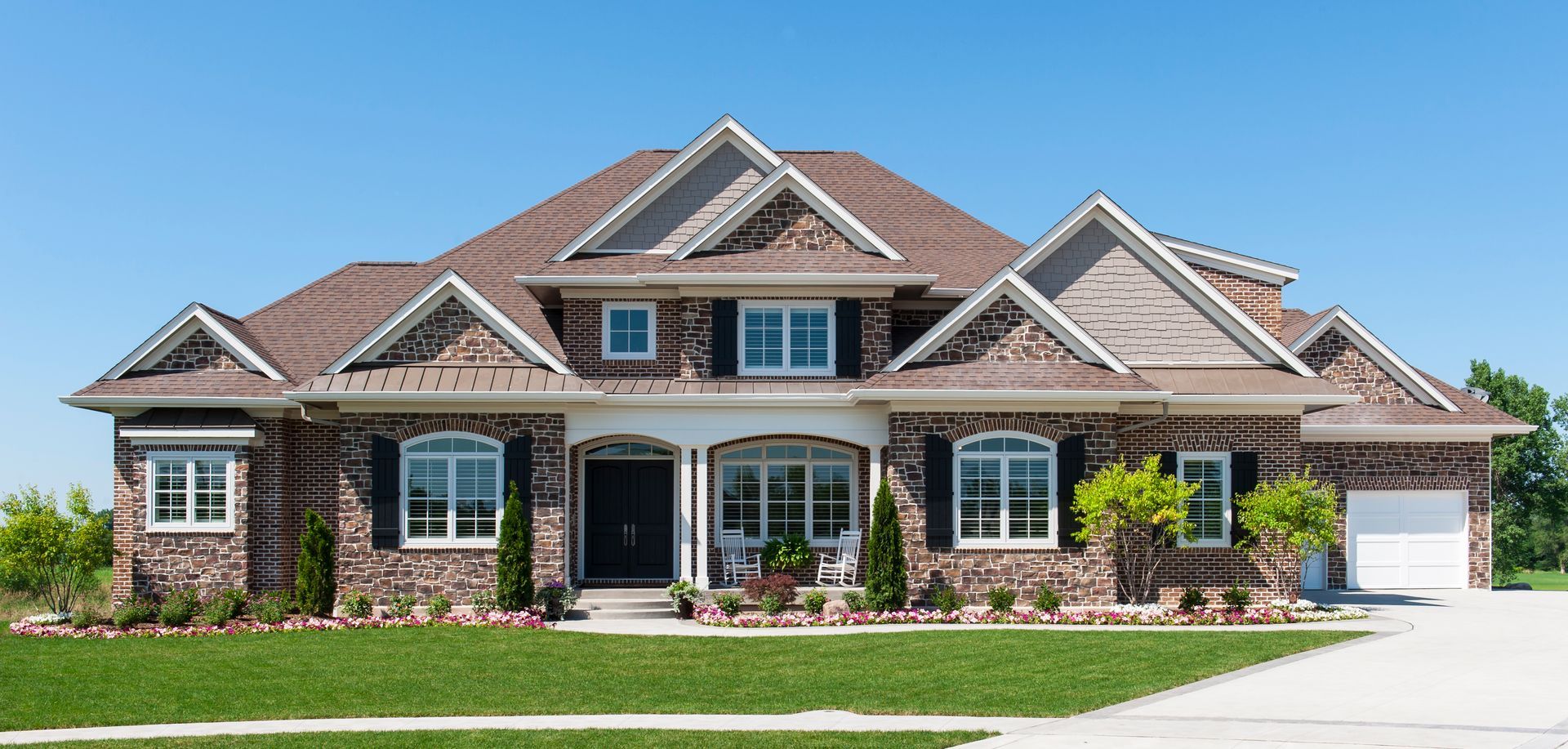
When it comes to selling your home, first impressions matter—a lot. One of the first things potential buyers notice about your house is its exterior. A worn-out, outdated roof can send the wrong message, but a new roof can be a game-changer in the real estate market. In this blog, we'll explore how investing in a new roof can not only enhance your home's curb appeal but also significantly improve your chances of selling your house quickly and at a higher price. Boosts Curb Appeal Curb appeal is the initial attraction factor for potential buyers. A new roof can instantly transform the look of your home, making it stand out in a competitive market. A well-maintained roof can add character and charm to your property, drawing in more interested buyers. Increases Perceived Value A new roof is not just a visual upgrade; it signifies quality and reliability to buyers. It gives the impression that your home has been well-cared for and is in good condition overall. Buyers are often willing to pay more for a house with a new roof because they perceive it as a valuable investment. Minimizes Inspection Concerns During the inspection process, an older or damaged roof can raise red flags for potential buyers. They might worry about hidden issues, such as leaks or structural damage, which can lead to negotiations or even a deal falling through. A new roof, however, eliminates these concerns and makes your home more appealing to buyers and inspectors alike . Energy Efficiency Many modern roofing materials come with energy-efficient features. A new roof can be designed to reflect heat, reduce cooling costs, and provide better insulation. Buyers are increasingly conscious of energy efficiency, and a new roof can be a strong selling point for eco-conscious individuals. Peace of Mind for Buyers A new roof can provide buyers with peace of mind, knowing they won't have to worry about costly roof repairs or replacements in the near future. This confidence can make them more likely to commit to buying your home. Competitive Advantage In a competitive real estate market, a new roof can set your home apart from others in your neighborhood. It gives you a competitive advantage, attracting more potential buyers and often resulting in faster sales. Better Appraisal Value An upgraded roof can positively affect the appraisal value of your home. Appraisers take into account the condition of major components, including the roof, when determining a home's value. A new roof can lead to a higher appraisal, which can support your asking price. Conclusion Investing in a new roof is not just an expense; it's a strategic move to increase your home's selling prospects. It enhances curb appeal, boosts perceived value, minimizes inspection concerns, improves energy efficiency, provides peace of mind to buyers, offers a competitive advantage, and can lead to a better appraisal value. So, if you're considering selling your home, think about the value that a new roof can bring to your property—it might be the key to a faster sale at a higher price.
10 Signs You Need a Roof Replacement

